When you think of summer, you probably think of swimming pools, cookouts, and sunshine — but do you also think of your oral health? During the summer, there are actually things that you should keep in mind when it comes to your smile.  Armed with some information, though, you can have a fun summer while maintaining beautiful and healthy teeth.
Armed with some information, though, you can have a fun summer while maintaining beautiful and healthy teeth.
Did you know that swimming pools can have an effect on your teeth?
The chemicals in swimming pools can lead to discoloration of your smile if you’re exposed for long enough. Research has shown that people who spent more than 6 hours a week in swimming pools ended up with discolored front teeth. The reason is the higher pH level of the water, which beaks down proteins in saliva and leave a brownish stain on your teeth. If the pool’s pH balance isn’t properly cared for, the water can also soften enamel, leading to an increased risk of decay and damage. Luckily, trips to the dentist for regular cleanings and fluoride treatments can combat both of these problems!
Summertime Foods and Beverages…and Your Smile
During the summer, you’re probably going to attend a lot of parties, and with parties come a variety of beverages and snacks. Summertime drinks include soda, sports drinks, white wine, beer, and lemonade, and these drinks are loaded with sugar. A simple tip for counteracting the effects of these beverages, however, is to rinse your mouth with water regularly throughout the party. But don’t brush your teeth too soon after consuming acidic beverages. These drinks can soften enamel, and brushing while the enamel is soft can do more damage. Wait at least an hour before you brush!
Party foods can be dark in color and full of sugar as well. Dark foods contribute to stained teeth, and we all know what happens when you eat too much sugar! Cavities! But by rinsing your mouth after eating these dark and sugary foods, you can avoid staining and cavities — and a trip to the dentist during your summer for teeth whitening and a checkup can give your smile a boost!
It’s pretty simple to keep your smile in shape during these summer months. Brushing, flossing, rinsing after food or drink, and regular trips to the dentist can help keep you looking and feeling your best. Now you just have to figure out how to stay cool!
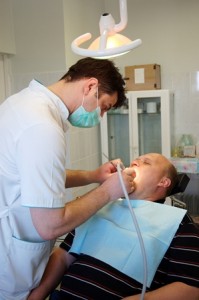
 When you think about oral health, you probably think about your gums and your teeth. After all, Americans spend about $1.8 billion on toothpaste and $775 million on toothbrushes. We’re serious about our oral hygiene habits! (And it appears we put our money where our mouths are, too!)
When you think about oral health, you probably think about your gums and your teeth. After all, Americans spend about $1.8 billion on toothpaste and $775 million on toothbrushes. We’re serious about our oral hygiene habits! (And it appears we put our money where our mouths are, too!) what is plaque? Why is it so bad for your teeth? And how can you get rid of it?
what is plaque? Why is it so bad for your teeth? And how can you get rid of it?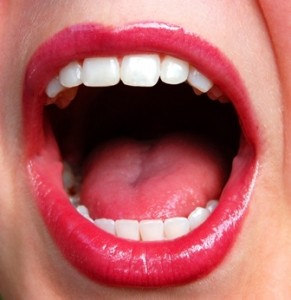 Have you noticed friends or co-workers stand further away than necessary to talk to you? Do you receive daily offers of gum and mints? Does your dog run away when you bend down and say hello? If the answer is yes to any of these questions … you probably have bad breath, also called halitosis.
Have you noticed friends or co-workers stand further away than necessary to talk to you? Do you receive daily offers of gum and mints? Does your dog run away when you bend down and say hello? If the answer is yes to any of these questions … you probably have bad breath, also called halitosis. High blood pressure, also called HBP or hypertension, can affect your ability to receive oral healthcare. Performing dental treatments on patients with hypertension can be detrimental! If your blood pressure is too high, many dentists won’t schedule procedures until you receive a health assessment from your medical doctor.
High blood pressure, also called HBP or hypertension, can affect your ability to receive oral healthcare. Performing dental treatments on patients with hypertension can be detrimental! If your blood pressure is too high, many dentists won’t schedule procedures until you receive a health assessment from your medical doctor.
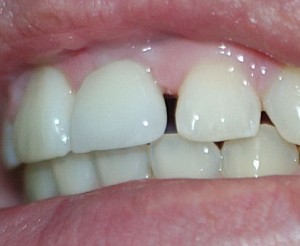 Diastema is a term used to describe a gap between two teeth. Many celebrities have a diastema including Madonna, Eddie Murphy, Jack Black, Lauren Hutton, Amelia Earheart, and Willie Nelson. For some people, a diastema makes their smile unique, and they choose to keep the charming midline gap.
Diastema is a term used to describe a gap between two teeth. Many celebrities have a diastema including Madonna, Eddie Murphy, Jack Black, Lauren Hutton, Amelia Earheart, and Willie Nelson. For some people, a diastema makes their smile unique, and they choose to keep the charming midline gap.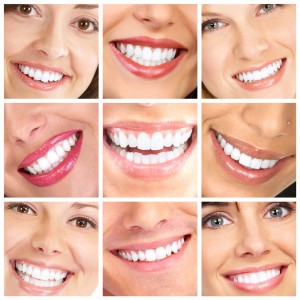 Nineteenth century novelist George Eliot once said, “Wear a smile and have friends; wear a scowl and have wrinkles.”
Nineteenth century novelist George Eliot once said, “Wear a smile and have friends; wear a scowl and have wrinkles.”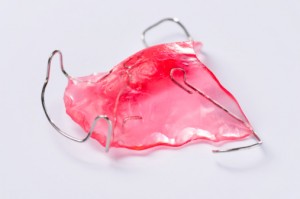 and even protozoa. A few help promote good oral health, some do you absolutely no harm, and others meet their fate in saliva or your belly.
and even protozoa. A few help promote good oral health, some do you absolutely no harm, and others meet their fate in saliva or your belly.